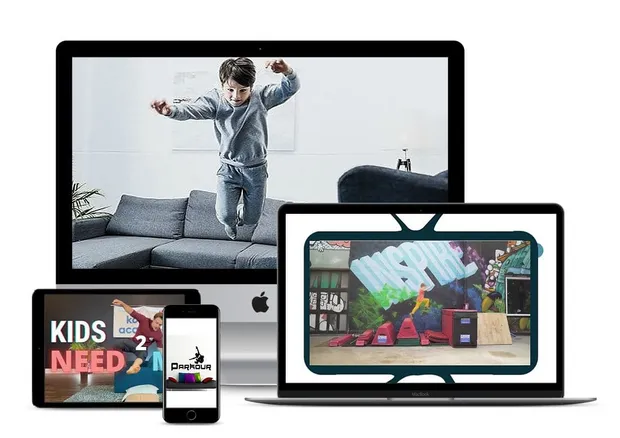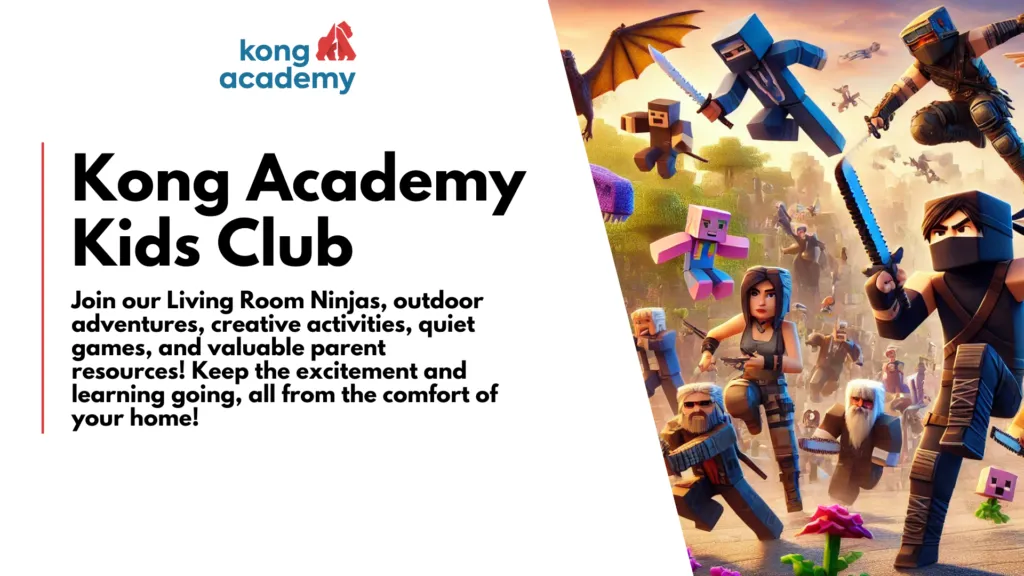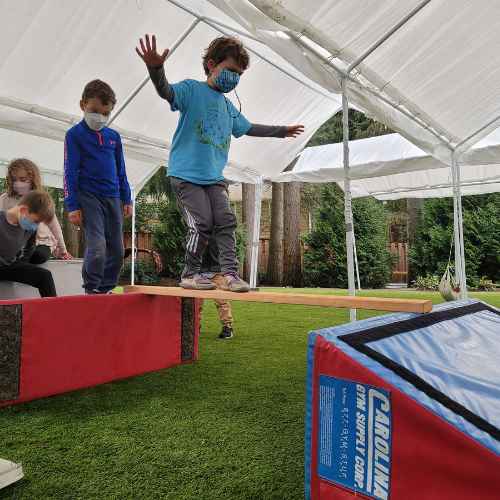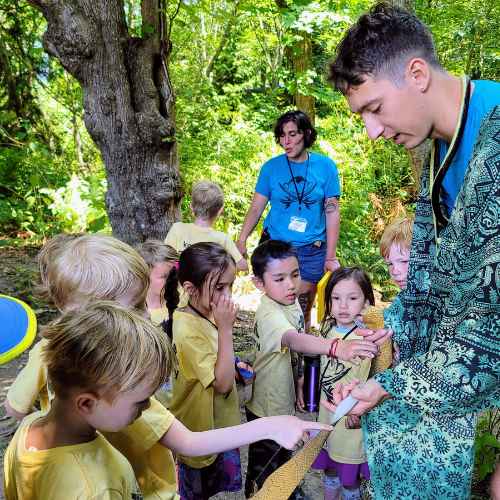
Have you ever caught yourself marveling at the boundless energy and curiosity of kids? They have this incredible ability to dream big, whether it’s aspiring to fly to the moon or inventing a new game. As parents and caregivers, it’s our privilege and colossal task to guide this energy and curiosity in a way that prepares them for the rollercoaster of life. This is where the concept of a growth mindset becomes a game-changer.
Imagine teaching your kids to see challenges not as insurmountable walls but as exciting puzzles waiting to be solved. That’s the essence of fostering a growth mindset. It’s about encouraging them to understand that effort and learning can expand their abilities and intelligence over time. Sounds empowering, right? Well, it is. A growth mindset sets your kids up to win in life.
From tackling homework with enthusiasm (yes, it’s possible!) to handling life’s curveballs with grace, a growth mindset can be your child’s superpower. So, whether you’re a parent, guardian, or caregiver, you’re about to discover how to nurture this mindset in your kids, ensuring they grow up to be lifelong learners, resilient problem solvers, and, most importantly, happy and fulfilled individuals.
Understanding Growth Mindset
The concept of a “growth mindset” has likely come across your path more than once, but its essence might still be unclear. Essentially, the idea, introduced by psychologist Carol Dweck, revolves around the conviction that through dedication, education, and steadfastness, we can enhance our capabilities and intellect. This stands in stark contrast to the fixed mindset, which suggests that our skills and intelligence are set in stone, offering minimal opportunity for growth or alteration.
Why It Matters
Think back to when you were learning to ride a bike. Did you hop on and just zoom off into the sunset? Unless you were a prodigy, chances are you had your fair share of wobbles and falls. But with encouragement and practice, you gradually improved. This is a classic example of a growth mindset in action. You didn’t succumb to the idea that you “just weren’t a bike rider”; instead, you pushed through the challenges, learned from each tumble, and eventually, you were pedaling like a pro.
Growth Vs. Fixed Mindset in Kids
In kids, a growth mindset manifests as the “I can get better” attitude. It’s the difference between a child saying, “I’m not good at math” and “I’m not good at math yet.” That tiny word “yet” packs a powerful punch, signifying belief in potential and improvement. On the flip side, a fixed mindset might stop them from trying new things, fearful of failure or believing that effort is pointless if you’re not “naturally gifted.”
Challenges and Failure: Learning Opportunities, Not Dead Ends
One of the most beautiful aspects of a growth mindset is how it transforms the view of challenges and failures. Instead of seeing them as dead ends, they become valuable learning opportunities. For your child, failing a test isn’t a label of “not smart enough”; it’s a signal to try a different study strategy or ask for help. It teaches resilience, showing them that setbacks are not reflections of their worth but stepping stones on the path to mastery.
The Big Picture
Fostering a growth mindset in your kids doesn’t mean ignoring their achievements or pretending setbacks don’t sting. It’s about shifting the focus from proving how smart or skilled they are to developing and deepening their abilities. It’s showing them that effort, practice, and learning from mistakes are not just part of the process; they’re the keys to unlocking their full potential.
Fundamentals of Fostering a Growth Mindset in Kids
Now that we’ve unpacked what a growth mindset is, you might be wondering, “How do I encourage this in my kids?” Here are the actionable, everyday strategies that can make a big difference.
1. Praise Effort, Not Just Results
You’ve probably said “Great job!” more times than you can count. It’s natural to celebrate your child’s successes. But when we focus our praise on the outcome alone (“You’re so smart!” or “You’re a natural!”), we miss a golden opportunity to reinforce the value of effort and perseverance. Instead, try praising the process: “I’m so proud of how hard you worked on that project” or “Your dedication to practicing really showed in your game today.” This approach encourages them to value hard work and resilience, not just the end result.
2. Encourage Perseverance and Grit
When your child faces a challenge, resist the urge to jump in and fix it immediately. It’s tough, I know! But it’s crucial for them to learn that persistence pays off. Encourage them to try different solutions and remind them of past moments when they overcame obstacles. Share stories of famous inventors, scientists, and artists who didn’t succeed on their first try. These narratives reinforce the idea that perseverance, not just raw talent, leads to success.
3. Model Growth Mindset Behaviors
Kids are incredibly observant, often mimicking the adults around them. Show them what a growth mindset looks like in action. When you face a challenge, talk through your thought process out loud: “This is really hard for me, but I’m going to try a different strategy.” Admitting when you don’t know something and then taking steps to learn more is also powerful. It demonstrates that learning is a lifelong journey, not just something that happens in school.
4. Use Constructive Language
The words we use matter. Instead of saying, “This is wrong,” try framing feedback as, “What’s another way we could approach this?” Encourage questions and curiosity, and when they’re stuck, guide them with hints or suggestions rather than outright answers. This not only helps develop their problem-solving skills but also maintains their motivation.
5. Cultivate a Safe Environment for Making Mistakes
Mistakes are not just acceptable; they’re necessary for growth. Create an environment where your child feels safe to take risks and fail. When a mistake happens, steer the conversation towards learning: “What can we learn from this?” Show them that every error is a chance to grow and that you value their effort to try, regardless of the outcome.
Skills and Opportunities Gained from a Growth Mindset
Embracing a growth mindset equips kids with a toolkit for life that goes far beyond academic success.
1. Enhanced Learning Abilities
Children with a growth mindset see learning as an exciting, never-ending journey. They’re more likely to embrace challenging subjects and persist through difficulties. This openness to learning not only boosts their academic performance but also makes the process more enjoyable.
2. Problem-Solving Skills
A growth mindset fosters innovative thinking and creativity. When kids believe they can grow their abilities, they’re more likely to approach problems with a “can-do” attitude, thinking outside the box for solutions. These problem-solving skills are invaluable, helping them navigate both school projects and real-world challenges with confidence and creativity.
3. Resilience in the Face of Failure
Learning to see failure as a stepping stone rather than a stumbling block is perhaps one of the most crucial aspects of a growth mindset. This perspective builds emotional resilience, enabling kids to bounce back from setbacks with a stronger determination to succeed. They learn to process and learn from their emotions rather than being overwhelmed by them, a skill that’s crucial for mental health and well-being.
4. Social and Emotional Benefits
Equipping kids with a growth mindset also deeply enriches their social and emotional landscape. They learn that effort and strategy can improve their abilities, which encourages them to view interactions and relationships through a lens of empathy and growth. Such children are more likely to be cooperative, offer help to peers, and seek constructive feedback.
They are less prone to jealousy or competitiveness because they understand that everyone’s journey is unique and filled with personal milestones. This mindset fosters healthier relationships, enhances communication skills, and promotes a supportive and understanding social environment.
Practical Ways to Encourage a Growth Mindset
- Help your children set realistic, achievable goals to give them a roadmap for growth and improvement. It’s about finding the sweet spot between too easy and impossibly hard. When they achieve these goals, it reinforces the idea that their efforts lead to success. Celebrate these milestones together, and discuss what’s next on their journey.
- Normalize mistakes in your household by treating them as natural and valuable parts of the learning process. Share your own mistakes and what you learned from them, emphasizing that everyone—adults and children alike—makes mistakes. This approach helps children to not fear failure, encouraging them to try new things and push their boundaries without the weight of being perfect.
- Introduce practices that encourage mindfulness and self-reflection. Teach your children to pause and reflect on their experiences, focusing on what they learned rather than what they didn’t achieve.
- Children often express their frustrations out loud, sometimes saying things like, “I can’t do this” or “I’m not good at this.” Gently guide them towards more positive self-talk by adding “yet” to their statements, turning them into “I can’t do this yet” or “I’m not good at this yet.” This small tweak in language can significantly change their mindset over time.
Long-Term Impact of a Growth Mindset
- In an ever-evolving job market, the ability to adapt and grow is invaluable. Adults with a growth mindset are more likely to embrace challenges, persist through setbacks, and learn from feedback—qualities that employers across industries covet. They’re also more prepared to pivot careers, upskill, and re-skill as the landscape of work changes.
- A growth mindset fosters an intrinsic love for learning, which transcends academic or professional realms. Individuals who embrace growth often pursue personal interests and hobbies with the same zeal they apply to their careers, leading to a richer, more fulfilling life.
- Equally important is the emotional resilience that a growth mindset builds. By learning to view challenges and failures as opportunities for growth, individuals develop a robust emotional toolkit. They’re better equipped to handle stress, navigate personal and professional setbacks, and maintain a positive outlook on life.
Fostering a growth mindset lays the groundwork for a lifetime of learning and personal growth. It encourages children to view failures not as insurmountable obstacles but as opportunities for development and discovery. By embracing challenges, persisting in the face of setbacks, and learning from criticism, our children learn to push the boundaries of their potential making every challenge a stepping stone towards their success.
Embrace the journey of growth and resilience at Kong Academy, where we turn challenges into opportunities and curiosity into lifelong learning. Just as fostering a growth mindset can transform obstacles into exciting puzzles, our programs encourage children to view each hurdle as a chance to grow stronger and more capable. Let your child discover their potential with us, where every “not yet” is a step closer to “I can.” Join Kong Academy and watch them soar.
GET Access to the ULTIMATE PLAY DATE PACKAGE (Value: $49) for FREE!


7-Day Crystal Shard Adventure
Unleash your child’s potential with our 7-day crystal shard movement adventure!




